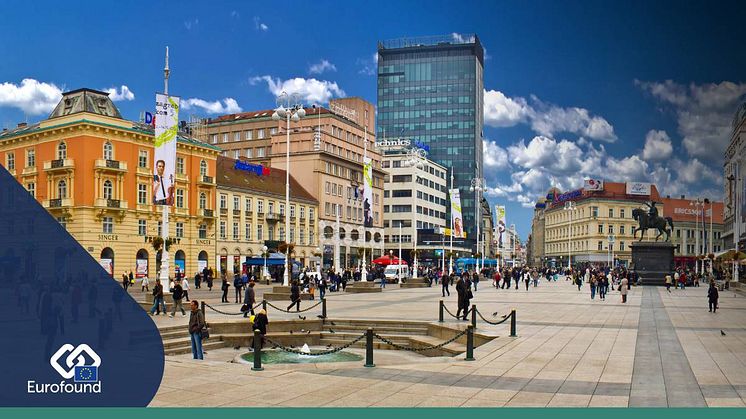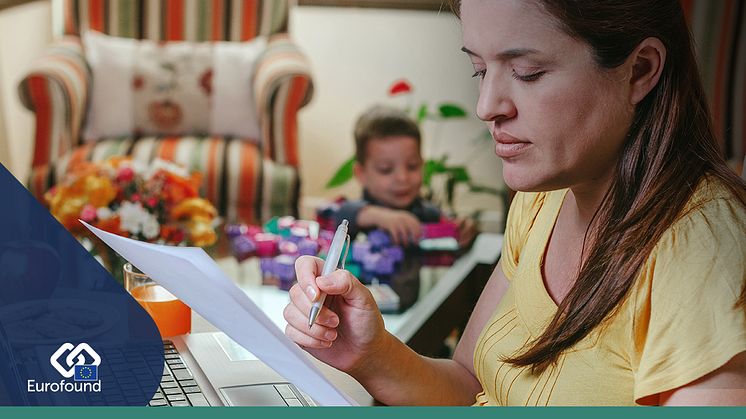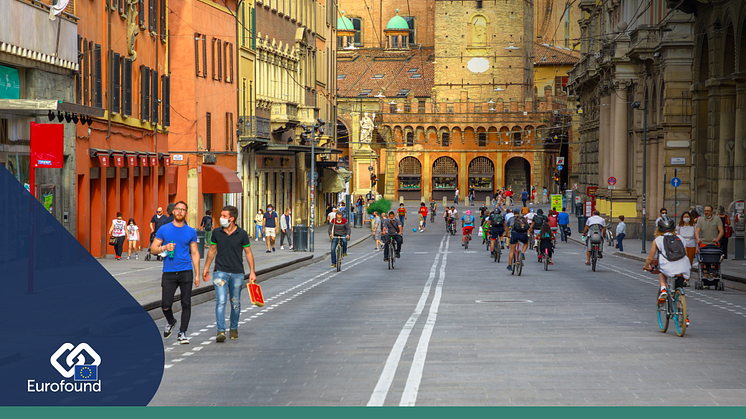
News -
Rise in precarious employment in Croatia places workers under further strain during pandemic
Eurofound’s recent research shows that COVID-19 has placed further strain on the Croatian labour market and puts people across the country at greater risk of financial insecurity. The recent Living, working and COVID-19 online survey reveals that 28% of respondents in Croatia have reported loss of employment due to the COVID-19 pandemic and more than half of workers, who remained in employment, reported a decrease in working hours. Previous research from Eurofound identified existing vulnerabilities in the Croatian labour market, with temporary employment and involuntary self-employment growing at some of the highest rates in the EU over the last decade.
Eurofound’s Living, working and COVID-19 online survey, which amassed over 85,000 responses in April, identifies that job loss and reduced working hours have been widespread in Croatia. These factors are likely to have played a role in 47% of respondents reporting a worsening of their financial situation when compared to the period prior to the pandemic, which is higher the EU27 average of 38%. The survey findings show that 41% of respondents in Croatia reported having difficulty making ends meet with their household’s income and 71% reported having no savings to rely on should they experience loss of income. As 19% of people in Croatia reported feeling fearful of losing their job in the coming three months and 50% predicated their financial situation to worsen in the coming period, a larger proportion of people may become exposed to financial insecurity in the months ahead.
Eurofound’s previous research on labour market change reveals that there has been considerable growth in the share of involuntary temporary employment, involuntary part-time employment and involuntary self-employment in Croatia over the last decade. The research shows that the share of temporary employment in Croatia increased from 12% to 20% between 2008 and 2018, of which 85% is considered to be involuntary. Furthermore, Croatia now reports the third highest share of involuntary part-time employment in the EU, increasing from 51% of all part-time employment in 2008 to 86% by 2018. The share of workers who are self-employed has also increased during the same period from 11% to 19% of all employment. The report outlines that just 31% of self-employed workers in Croatia do so by choice, illustrating that many self-employed workers may be in precarious employment situations.
The report identifies that the at-risk-of-poverty rate is higher for non-standard employees than for workers with a permanent full-time job. It highlights that those on temporary contacts, or self-employed, often have less formal or less effective coverage from social benefit schemes and may be more likely to be exposed to financial hardship, particularly in times of crisis. Furthermore, Eurofound’s research on minimum wages shows that around 10% of workers in Croatia earn the minimum wage, and the minimum wage level is the fifth lowest level in the EU. The report also notes that workers in non-standard forms of employment tend to be less well reached by minimum wage policies. Therefore, workers in precarious employment, and those earning minimum wages, are likely to some of the most affected by the economic impact of the current crisis.
Overall, quality of life indicators in Croatia are, for the most part, below EU averages with life satisfaction at 5.5 (on a scale of 1-10), which is below the EU average of 6.4. However, indicators of mental well-being are generally strong in Croatia with 15% of respondents reporting to feel particularly tense during the pandemic, which is below the EU27 average of 18%. Furthermore, 35% reported feeling cheerful and in good spirits all or most of the time, which is also above the EU27 average of 29%. Despite many challenges, and a large proportion of workers who may find themselves in uncertain employment situations, it is positive to see that 42% of respondents reported feeling optimistic for the future.
As the situation is constantly evolving, Eurofound will launch the second phase of the Living, working and COVID-19 survey this Friday to capture up-to-date data to reflect the current impact of the COVID-19 pandemic on the living and working conditions of people across Europe.
Eurofound has been monitoring and reporting on living and working conditions in Croatia, in comparison to other EU Member States, since Croatia joined the EU in 2004.
Read more:
Publication: Living, working and COVID-19: First findings – April 2020
Publication: Minimum wages in 2020: Annual review
Publication: Labour market change: Trends and policy approaches towards flexibilisation
Country profile: Living and working conditions in Croatia





